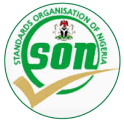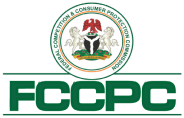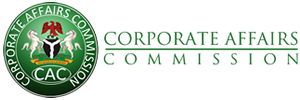,
PROTOCOL
Your Excellency- the Commercial Counsellor of the Peoples Republic of China to Lagos, Honorable Minister of Health- ably represented by Mrs Ajayi, the Honorable Commissioner of Health Lagos State ably represented, the Chairman of PMG-MAN and captains of the Pharmaceutical industry, the National President of APIN and members of his group, the Secretary General of CCCMHPIE, members of the Press, Distinguished Ladies and Gentlemen
It is a great opportunity to present the timely topic – Nigeria-China Partnership in Local Manufacturing of Pharmaceutical Products and Medical Devices: Regulatory Perspectives. I would like to thank the China Chamber of Commerce for Import and Export of Medicines and Health Products (CCCMHPIE) for organizing the promotional event. Few days ago, the Nigerian delegation, led by the Honourable Minister of Health met with the CCCMHPIE in Beijing where we were very warmly welcomed with great enthusiasm. The lunch meeting underscored the excitement and the goals of the China-Africa Health Cooperation High-Level Meeting. I would like to express our gratitude again on behalf of the Honourable Minister.
At the meeting, local manufacturing of pharmaceutical and health-related products in Africa was the theme. The Nigerian delegation, in particular emphasized partnership with China in local pharmaceutical manufacturing of drug products, active pharmaceutical ingredients (APIs), non-active ingredients and medical devices partnership as a sustainable strategy.
I reiterated the fact that there are many pharmaceutical companies in Nigeria that are willing to partner with China to produce locally some essential medicines and other needed therapeutics in Nigeria. As it is today, Nigeria imports all its APIs, non-active ingredients, medical devices and equipment. We would like to see partnership agreements that will quickly lead to production of these pharmaceutical needs within the country. I also emphasized the need for symmetric understanding between the two countries in order to foster the relationship.
As one of the top twenty drug regulatory Agencies in the world, the Nigeria Agency for Food and Drug Administration and Control (NAFDAC) has worked very hard to carry out its mandate, and also enable the local manufacturers to increase their capacity through training in good manufacturing practices, use of common technical document, revision of our regulations and guidelines, etc.
The Nigeria Agency for Food and Drug Administration and Control (NAFDAC) is a federal agency under the Ministry of Health in Nigeria with the mandate and responsibilities for the regulation and control of the manufacture, importation, exportation, advertisement, distribution, sale and use of food, drugs, cosmetics, medical devices, chemicals and packaged water in Nigeria. NAFDAC was established by Decree 15 of 1993 which was replaced by the National Agency for Food and Drug Administration and Control Act Cap N1 Laws of the Federation of Nigeria (LFN) 2004. NAFDAC in its current organizational structure was officially established in October in 1993.
The functions of NAFDAC as guided by the Act include setting regulations to meet international standards, test products for quality, safety and efficacy, investigate and inspect for quality assurance systems, including certification of the production sites. Other functions include registration of food, drugs, cosmetics, medical devices, bottled water and chemicals; control the exportation and issue quality certification of the regulated products intended for export; establish and maintain relevant laboratories for routine analysis and pharmacovigilance/post-marketing monitoring, undertake and co-ordinate research programmes that could drive regulations, issue guidelines on, approve and monitor the advertisement of food, drugs, cosmetics, medical devices, bottled water and chemicals.
The mission of NAFDAC is to safeguard public health by ensuring that only the right quality drugs, food and other regulated products are manufactured, imported, distributed, advertised, sold and used in Nigeria. Therefore, as a commitment to our mission, the Agency is highly proactive to ensure that substandard and falsified medicines (SFs) and illicit drugs, narcotics and other substances of abuse are controlled from coming through our ports and the porous borders.
In the spirit of the China-Nigeria Health Cooperation, I emphasized at the meeting in Beijing that the China Food and Drug Administration, now called China Medical Products Administration (CMPA) should revisit the part of their regulation that doesn’t regulate products manufactured “For Exports Only” and bring such products under their control. Such products include illicit drugs such as codeine and tramadol that have caused a lot of damage, deaths and addiction in Nigeria. I am pleased to know that the CCCMHPIE noted this at the meeting and would follow it up.
Regarding local manufacturing, Nigeria is willing to partner with Chinese companies because unlike many African countries, Nigeria’s pharmaceutical manufacturing has operated strong since the late 1960’s and early 1970s. However, due to political changes, the industry suffered some losses from which it is trying to recover. We have about 170 manufacturing companies with over 15,000 products covering many classes of drugs. It is our hope that from the CCCMHPIE cooperation, that some therapeutics that are not manufactured in Nigeria due to lack of capacity may become good candidates for local manufacturing partnership.
Examples of such are vaccines, blood products, antivirals, antimalarials, oncology, antidiabetics, parenteral antibiotics, and fixed dose combination products.
Local manufacturing of APIs and non-actives are of utmost importance and so are medical/pharmaceutical equipment, devices, gauze, bandages, syringes, cotton pads and surgical gloves
As part of the health cooperation, capacity building should be included in the partnership, where NAFDAC official or a staff from a manufacturing company can get trained in China on specific subject matter. It is our hope that research and development (R&D) will become part of the partnership so that products can get registered through the FDA pipeline, which automatically gives the product WHO Pre qualification.
Another area of partnership is in the development of medicines for tropical diseases. These will include conventional drugs and complementary alternative medicines such as herbal medicines. This can be explored further as a follow up.
In terms of incentives of trade, and in particular local manufacturing of essential medicines and needed therapeutics, I will defer the discussion to pharmaceutical manufacturing group (PMG-MAN).
Thank you






